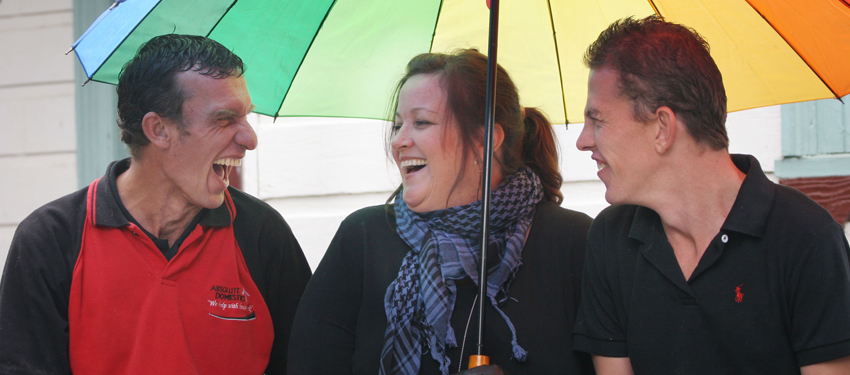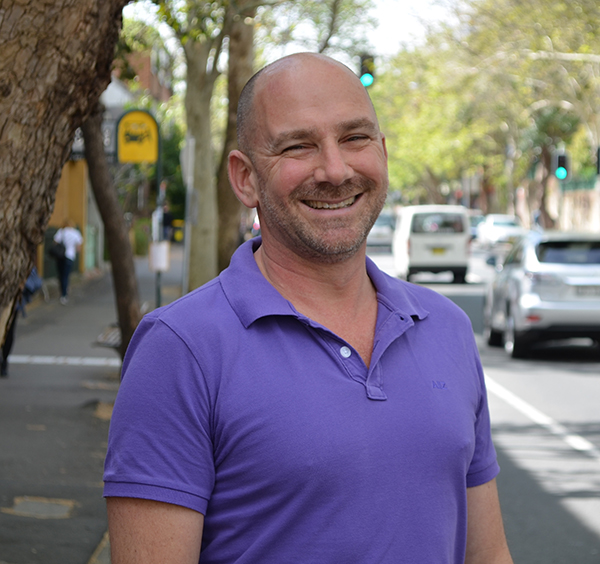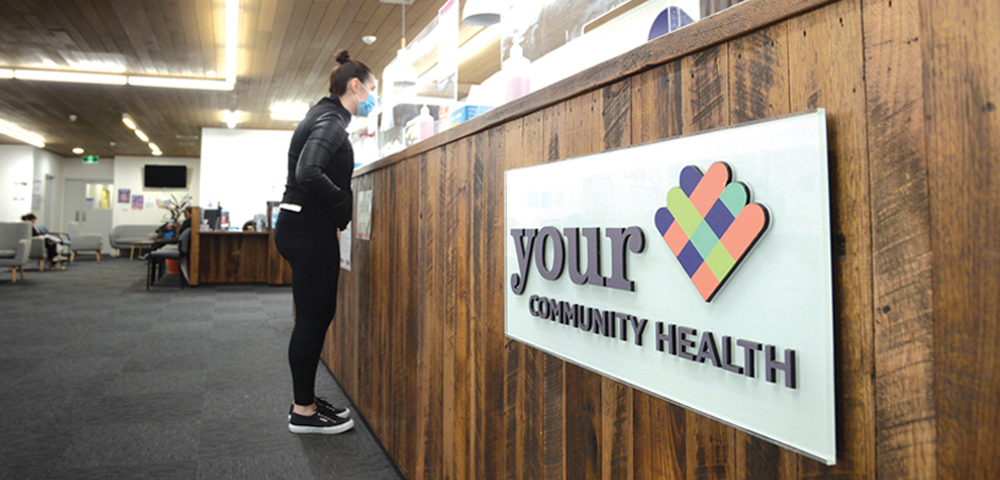
Needed: Shoulders to lean on, ears to listen with

“OF course, when you meet for the first time, you’re as nervous as all hell, as they probably are as well,” says David Keys, originally from Bankstown in Sydney’s south west.
“It’s not like E-Harmony; there’s no picture profiles like Grindr. It’s about what they want and finding the right match.
“I’d never put myself in this kind of situation before and the first time I thought it was going to be for an hour, but we got on so well, it was almost three. Now I see him on the weekend and during the week I call or text to touch base, say hello and see how things are going,” he adds.
“The clients often don’t have a lot of friends and when you’re that person’s social interaction it makes you step back and not take what you have for granted.”
Keys is a volunteer at HIV support group Ankali, and his client is one of upwards of 100 people, from in and around Sydney, who access the organisation seeking emotional and social assistance.
However, a shortfall in the number of available volunteers has led Ankali to conduct a recruitment drive with the hope of encouraging more people, some of whom might not have considered volunteering, to come forward.
“Clients and volunteers come and go so there’s always a turnover, but at the moment we only have two people available,” says John Jones, a social worker at Ankali, which is based at the Albion Centre in Surry Hills and supported by NSW Health.
Gay men make up around 40 per cent of volunteers at Ankali but there is demand for a wide spectrum of people from different backgrounds.
“We have women, retirees and people working 9–5 who are looking to engage with people on a very different level,” Jones says.
Everyone takes part in an initial four-day training course so they are fully prepared when they meet their clients as well as attending a regular group where they can receive support and advice from other staff and volunteers.
Jones says many of the project’s clients are people who have had periods of illness or had to give up work, leaving them socially isolated.
“Sadly, there is still a lot of stigma, even in the gay community, and so a client may not have told their friends about them having HIV or they may not want to bother them about the issues around it,” he says.
“Having someone who knows about HIV and who is not judgmental can be comforting so the work of the volunteers has always been about accepting the person they are with.”
However, Ankali doesn’t randomly connect up volunteers with clients.
“We only match when we see it’s going to be a good working relationship, when the personalities, the geography, the skills and life experience are right,” Jones says.
Keys nominates being a sounding board as an asset for anyone thinking of helping at Ankali.

“I’ve always been a shoulder, I’ve always been an ear but I’m good at keeping my mouth shut and keeping secrets,” he says.
“Sex, race, age all of those things don’t matter as long as you’re a good listener, have some life experience and are willing to share parts of your life with your clients, as they will with you.
“Aside from that you don’t have to put on any airs and graces, just be yourself.”
Keys adds that the regular sessions with other volunteers are an essential part of the experience: “When you’re talking to a client you’re taking a lot on board so group is a chance to discuss that in a confidential setting.
“Some clients might have substance abuse or age-related issues and it’s good to get all that off your chest.”
A typical catch-up between Keys and his client, who he meets once a week, might involve coffee or lunch, perhaps a trip to an art gallery or a drive out to the countryside.
However, this week, it involves collecting Charlie.
“My client said he wanted a lap cat so our last meeting was spent at the Cat Protection Society,” he says.
“When we went in you could just see that he and this black and white cat just clicked. So this weekend we’ll have a coffee beforehand, go and pick up Charlie and then take him home and have a bit of a natter.
“I don’t start conversations about his condition and I won’t — that’s up to him to bring forward if he wishes to. One client may be completely private and one might be a chatterbox.”
Keys says he understands that when it comes to volunteering, for many people, “life gets in the way”. It took him years to find the time and the right opportunity but then he thought: “Well, 2014’s going to be my year for giving back.”
His advice to other people pondering volunteering at Ankali?
“Bloody do it,” he says.
“I wish I’d done it 15 years ago. It’s really hard to put into words but I get so much out of it and I just wanted to give something back to the community that has helped me so much.”
The next Ankali volunteer training dates are November 15–16 and 22–23. For information call (02) 9332 9742 or visit www.thealbioncentre.org.au/
**This article first appeared in the November edition of the Star Observer.










As an Ankali volunteer, I have to agree. It’s probably the most rewarding thing you could do. And you’re very well looked after.